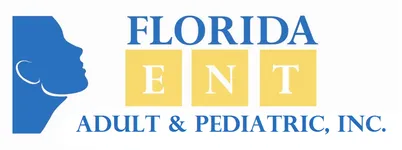The salivary glands are found in and near your mouth, face, and neck. Dehydration is a risk factor for certain salivary gland disorders. To help maintain good oral health, it’s important to drink lots of liquid every day to promote good saliva production. The major salivary glands include the parotid
Read more-
Salivary Gland Disorders
Category: Throat
-
Sensorineural Hearing Loss (SNHL)
Category: Ears
Hearing loss can be broadly separated into two categories: conductive (problems in delivering sound to the inner ear) and sensorineural (problems of the inner ear, or cochlea, and/or the auditory nerve that connects the inner ear to the brain). Sensorineural hearing loss (SNHL) happens when there is
Read more -
Sialadenitis
Category: Head & Neck
Sialadenitis is inflammation and enlargement of one or more of the salivary (spit) glands. The salivary glands are responsible for producing and storing saliva. The three major salivary glands are the “parotid” (on the sides of the face in front of the ears), “submandibular” (under the jaw),
Read more -
Sinus Headaches
Category: Nose
Not every headache is the result of sinus and nasal passage problems. For example, many patients visit an ENT (ear, nose, and throat) specialist, or otolaryngologist, to seek treatment for what they think is a sinus headache, only to learn they actually have a migraine or tension headache. The confusion
Read more -
Sinusitis
Category: Nose
Have you ever felt like you had a cold that wouldn’t go away? If symptoms of discolored nasal drainage and blockage hang around for more than 10 days, or worsen after they start getting better, there’s a good chance you have sinusitis, an infection or inflammation of the sinuses. Sinuses are hollow
Read more -
Sore Throats
Category: Throat
Everybody gets a sore throat now and then. When you have a sore throat, this can affect speaking, swallowing, or breathing. Infections from viruses or bacteria are the main cause of sore throats, but allergies and sinus infections can also contribute. Some sore throats are worse than others. If you have
Read more -
Spasmodic Dysphonia
Category: Throat
Spasmodic dysphonia (SD) is a voice disorder that causes involuntary spasms or contractions of the vocal cords, interrupting speech and affecting the quality of a person’s voice. The voice may sound broken, strained, or breathy depending on the type of SD. The two most common types of SD are the adductor
Read more -
Tinnitus
Category: Ears
Over 50 million Americans have experienced tinnitus, or ringing in the ears, which is the perception of sound without an external source being present. About one in five people with tinnitus have bothersome tinnitus, which negatively affects their quality of life and/or functional health. Tinnitus may
Read more -
Turbinate Hypertrophy
Category: Nose
Turbinate hypertrophy refers to an excessive growth or enlargement of the turbinates, which are bony structures located inside the nose. They are covered with a special skin called mucosa, and they help filter, warm, and humidify the air as you breathe. The mucosa naturally swells during the normal nasal
Read more -
Vestibular Schwannoma
Category: Ears
Vestibular schwannoma is a benign (non-cancerous) tumor that grows on the eighth cranial nerve, which is responsible for hearing and balance. The tumors are rare, accounting for only five to seven percent of all brain tumors. However, for the part of the brain where they are located, called the cerebellopontine
Read more -
Vocal Cord Paralysis
Category: Throat
People have one set of two vocal cords, also known as vocal folds, that work together in your voice box to produce sound. They open when you breathe in to let the air flow through your lungs, and they close and vibrate when you speak (this is called phonation). To produce adequate voice, both vocal cords
Read more -
Zenker’s Diverticulum
Category: Throat
A Zenker’s diverticulum (ZD) is a rare condition where an “outpouching” occurs where your throat meets your esophagus, the swallowing pipe that leads into your stomach. When this happens, a pouch forms and mucous, food, and/or liquid can become stuck instead of going down your esophagus and into
Read more
We'll Call You! Request an Appointment
This is to be used only to schedule appointments, for additional communications please contact the office.
Our Locations
Find us on the map
Office Hours
Closed Daily for Lunch From 12:00-1:30pm
Monday:
8:00 am-5:00 pm
Tuesday:
8:00 am-5:00 pm
Wednesday:
8:00 am-5:00 pm
Thursday:
8:00 am-5:00 pm
Friday:
8:00 am-12:00 pm
Saturday:
Closed
Sunday:
Closed
